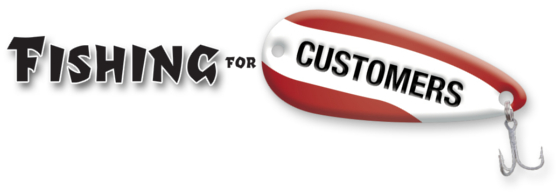 Years ago, while I was conducting sales training classes, I noticed that the attendees eyes all glazed over at the same point in the training. There were two ways I could have reacted.
Years ago, while I was conducting sales training classes, I noticed that the attendees eyes all glazed over at the same point in the training. There were two ways I could have reacted.
I could have said “Why do I keep getting the stupid trainees?” Or, I could have said, “I need to re-write this material.”
I chose “B.”
When I changed “This is a mutually beneficial marketing opportunity,” to “This deal is good for both of us,” I saw their heads nod in agreement.
But, please notice I simplified the vocabulary, not the concepts. That’s an important point, because your prospects are smarter than you’ve been giving them credit for being.
How many times have you heard it said that to be successful your ads, your brochures, your instructions should be written at an eighth grade level? Have you interpreted that as “write for dumb people?”
You shouldn’t.
Talk to people in the words they use.
Its been demonstrated that the average adult in the U.S. Has a vocabulary in excess of 30,000 words, but uses fewer than 1,000 in daily conversation. My own experience with small children and adults who are learning English as a second language indicates that meaningful conversation can occur with approximately 300 words.
So, which words should you choose for communication with you prospects and customers? The simple words. The short, unambiguous, commonly used and easily understandable words. The words they use everyday in other conversations.
But don’t dumb down what you need to say. That makes for poor communication, too.
Earlier this week I read (again) how important it is to keep communications to arbitrary lengths. A press release must be no more than 360 words. A blog post no more than 170. No article or essay to be posted on the web should exceed 800 words. Why? Because people won’t stay focused for more than three or four minutes. At least, that’s the theory.
And yet, we still have bestsellers lists of novels, business books, technical instruction – how many of them run more than 300 words? No kidding? All of them (he asked, his virtual voice dripping with sarcasm)? Most have three hundred times that many. And people keep buying (and reading) them.
These people who won’t stay focused for more than a few minutes are still purchasing movie tickets, watching televised sporting events, and attending lectures. They’re buying and reading magazines, and learning to speak other languages (with vocabularies in excess of 300 words, no doubt).
Let me propose an alternate theory.
People have short attention spans when you’re boring them.
If you have to limit your blog posts to 170 words its because at an average reading rate that’s the limit of people’s attention spans to badly written communications. If you can’t hold the attention of a reader for more than 360 words, its probably because you have nothing to say, you’re saying it badly, or you’re not expressing yourself in the words that make for easy conversation.
People’s attention spans aren’t limited to three or four minutes when what you have to say is meaningful. People are just not willing to be bored.
So, how do you stay interesting? There’s no getting around that you have to write about things your audience wishes to read about. But, assuming your content might be meainingful, when you have the choice, choose Anglo-Saxon rather than Latin words.
Choose “let,” rather than “permit.” Choose “make” instead of “manufacture.” They’re easier to spell and easier to understand. They are the words people naturally use in their own conversations. As Winston Churchill said “Short words are best and the old words when short are best of all.”
Richard Lederer, in The Case for Short Words, said “Short words are bright like sparks that glow in the night, prompt like the dawn that greets the day, sharp like the blade of a knife, hot like salt tears that scald the cheek, quick like moths that flit from flame to flame, and terse like the dart and sting of a bee.”
Emotionally powerful, isn’t it? And yet, these are words the average three-year-old understands.
Did you notice that every one of those words was a single syllable long? Did you feel the writer had “dumbed it down?” Or could you actually feel that sharp blade and those salty tears?
Effective Communications.
If you have something to say, say it succinctly, say it emotionally, say it in ways that maximize understanding. Say it in simple, direct words. They are the shortest distance between two minds. And use as many words as it takes to make your point.
If you have nothing to say, by all means limit yourself to 170 words.
Your Guide,
Chuck McKay
 Your Fishing for Customers guide, Chuck McKay, gets people to buy more of what you sell.
Your Fishing for Customers guide, Chuck McKay, gets people to buy more of what you sell.
Got questions about communicating in the way people wish to communicate? Drop Chuck a note at ChuckMcKay@ChuckMcKayOnLine.com. Or call him at 317-2073-0028.
